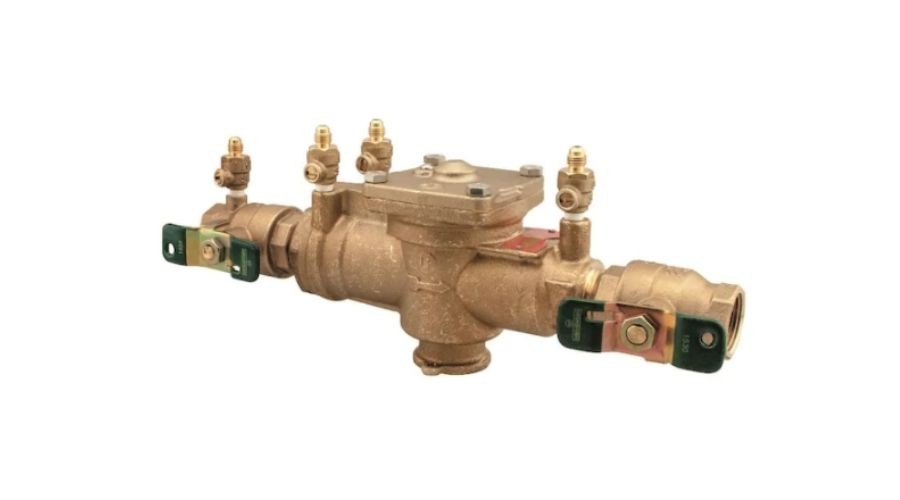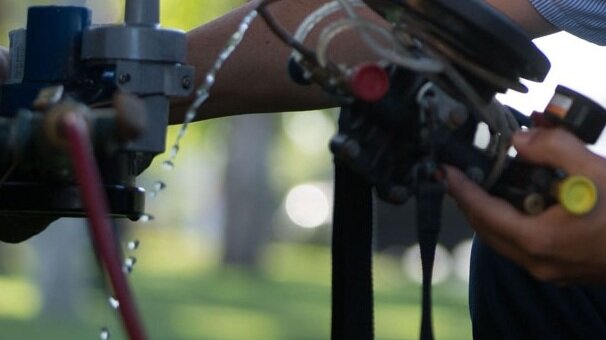The article author is making a number of good annotation relating to Backflow Assembly Testing in general in this post which follows.

Yes, you need to backflow test your home's water supply to ensure that the water is free of contaminants and harmful levels of chemicals. You should not try to execute backflow testing on your very own since of the equipment needed and room for error. We suggest that you call a specialist plumber every number of years to test your water.
Heartburn Can Effect Both You and also Your City
Numerous cities develop heartburn guidelines since unsafe backflow can affect the public water system along with a solitary building. Modern-day cities have backflow devices in location that shield the water supply that comes from many homes and also business homes. The actual hazard originates from irrigation systems, which can harm the supply of water with harmful fertilizers, manure, as well as other chemicals.
What Causes Backflow?
A typical cause of backflow is a loss of water pressure that causes the water to siphon back into the water supply. After some time, there is a loss in water stress and also the pipe starts to suck the water back right into the water supply. As you can imagine, there are now chemicals from the paint that are going into the water supply, potentially posing a risk.
Heartburn Screening is Required by Legislation in Specific Cities
Relying on where you live, you might actually be required by law to backflow test your legislation. For instance, Iowa City keeps a record of all buildings offered by the city's water supply. The city needs that certain "high-hazard" facilities undertake backflow screening. In some cases, houses such as residences and also apartment buildings are impacted.
You Can Avoid Heartburn
The major purpose of a heartburn device is to protect against water from flowing in reverse into your water supply. Plumbing technicians install the gadget on the pipelines in your house to guarantee that the water just moves in the appropriate instructions.
What is Heartburn?
In short, backflow is when water moves upwards-- the opposite instructions in the plumbing system. This is additionally called "backpressure." When the water relocates this instructions, it can blend with damaging contaminants and present a threat.
Call a Plumber to Check for Heartburn Prior To It is Too Late
While it may appear grim, polluted water can result in awful microbial and viral infections that are challenging to deal with. A plumbing company can rapidly examine your house's water to establish if there are any hazardous chemical degrees. The tiny investment is if you can avoid the misery that comes from drinking polluted water. As well as if you do uncover that your water has high degrees of toxins, a plumber can quickly set up a heartburn avoidance tool.
Yes, you require to backflow test your residence's water supply to make certain that the water is complimentary of toxic substances and harmful degrees of chemicals. Numerous cities establish heartburn guidelines due to the fact that harmful heartburn can impact the public water supply in enhancement to a single structure. A typical reason of backflow is a loss of water pressure that causes the water to siphon back into the water supply. After some time, there is a loss in water pressure and the hose begins to draw the water back right into the water supply. The major objective of a heartburn device is to stop water from flowing backward right into your water supply.
Backflow Testing: What Is It, and Why Is It Necessary?
What Is Backflow?
Backflow is exactly what you might imagine this somewhat gross-sounding word to mean. It is contaminated water that has reversed flow, and as a result, enters into the clean water lines of homes and businesses. Backflow is typically caused by a significant change in water pressure. This can be due to a water main break, frozen pipes or an unexpectedly high demand on the water system. It can occur at any cross-connection between clean and dirty water in residential, commercial or industrial water lines. And the worst part – backflow can contain hazardous materials like human waste, pesticides or chemicals. Needless to say, it poses very, very serious health concerns, not to mention the potential for a heap-load of expensive stress!
Backflow Prevention and Testing
In order to safeguard against backflow in standing structures, a backflow prevention device should be installed by a trusted team of professionals. Once installed, if there should ever be an unexpected or dramatic change in water pressure, the device will prevent backflow from entering into the clean water supply system. But, again, it’s important that this device is properly installed by a professional so that they can test it and ensure that the clean water line remains contaminant free. This really is key.
While personal standards and responsibilities should maintain certain routine testing requirements, there are already municipal codes in place that require annual testing of these backflow prevention devices. This ensures that they are functioning properly and that no hazardous contaminants are spilling out into the clean water supply. If, however, testing of any device is not completed on time, you should know that a property or business’ water supply might be interrupted, and the property owner might even face fines. So, to avoid this from happening to you, we recommend scheduling a backflow test well in advance.
Fortunately, here at Tritan, we can help schedule and carry out backflow testing for your property. We provide a variety of backflow-related services, including prevention device installation and testing. Call us today and make sure that this stressful problem doesn’t happen to you and your property or business.
https://www.tritan-plumbing.com/blog/2018/february/backflow-testing-what-is-it-and-why-is-it-necess/

I stumbled upon that blog post on Backflow Testing while scouting around the search engines. So long as you appreciated our blog post please remember to pass it around. I appreciate reading our article about Backflow Assembly Testing.
Always here, call!
Comments on “Do I Need to Test My Water for Backflow”